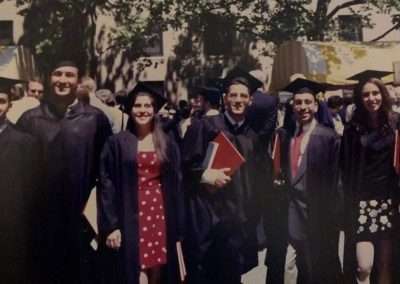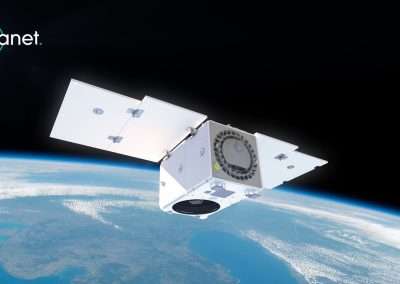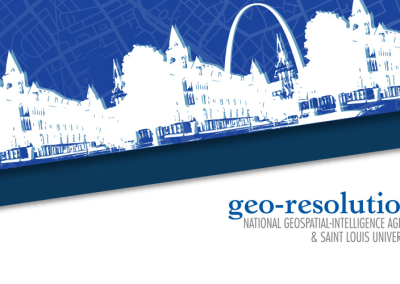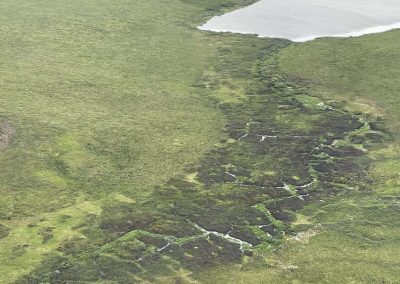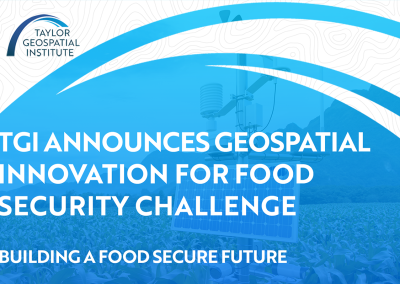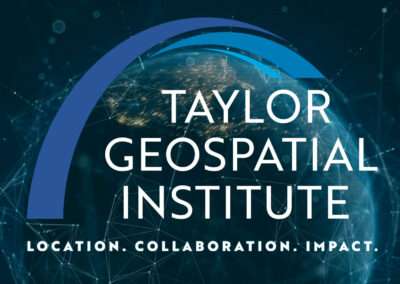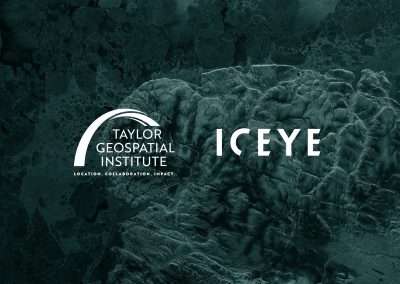ST. LOUIS – The Taylor Geospatial Institute has been recognized as a Participating Organization in the Group on Earth Observations (GEO), a global, collaborative, intergovernmental body that is dedicated to co-producing user-driven Earth Intelligence solutions by collecting and sharing vital geospatial information about the planet. GEO recognized TGI as a Participating Organization at its 63rd Executive Committee meeting.
“We very much look forward to your active engagement with the GEO community,” wrote Yana Gevorgyan, GEO Secretariat Director, in a letter announcing TGI’s recognition as a Participating Organization.
GEO aims to develop a deep, science-driven understanding of climate change dynamics, accelerated global responses to disasters, and other indicators of our planet’s health by amassing a vast reservoir of Earth data, from satellite images of forests and oceanic temperature readings to pollution maps and tracking of human electricity use. The organization prioritizes making these insights available and accessible to all and using them to “ensure that decisions made for Earth’s future are based on the best available knowledge, fostering an all-inclusive user-centric approach to planetary care,” according to the GEO website.
According to TGI executive director Nadine Alameh, Ph.D., becoming a GEO collaborator opens a world of opportunity. “We are pleased to join the ranks of the other Participating Organizations in GEO. Our consortium research on the use of geospatial science in the domains of food, water, health, and national security can contribute to a better understanding of these challenges and the ability to intelligently shape global policy mandates,” she said. “We are proud to become a participating organization and look forward to supporting the important work of the broader GEO community with our focus on unbiased, collaborative geospatial research.”
Alameh added that GEO and TGI are aligned on another front. “I’m excited that we will be furthering GEO’s vision of a sustainable future, not only via trusted Earth Intelligence and research, but also by training the next generation of geospatial scientists and thinkers,” she said. “TGI holds regular workshops, trainings, and career seminars to encourage and guide students and early career geospatial researchers through their professional journeys.”
About Taylor Geospatial Institute
TGI is passionate about fueling geospatial science and technology to create the next generation of solutions and policies that the whole world will depend on for sustainability and growth.
The TGI consortium includes Saint Louis University, the Donald Danforth Plant Science Center, Harris-Stowe State University, University of Illinois Urbana-Champaign, Missouri University of Science & Technology, University of Missouri-Columbia, University of Missouri-St. Louis, and Washington University in St. Louis. Collectively, these institutions cover geospatial research from ocean depths to outer space.
For more information, visit taylorgeospatial.org.


